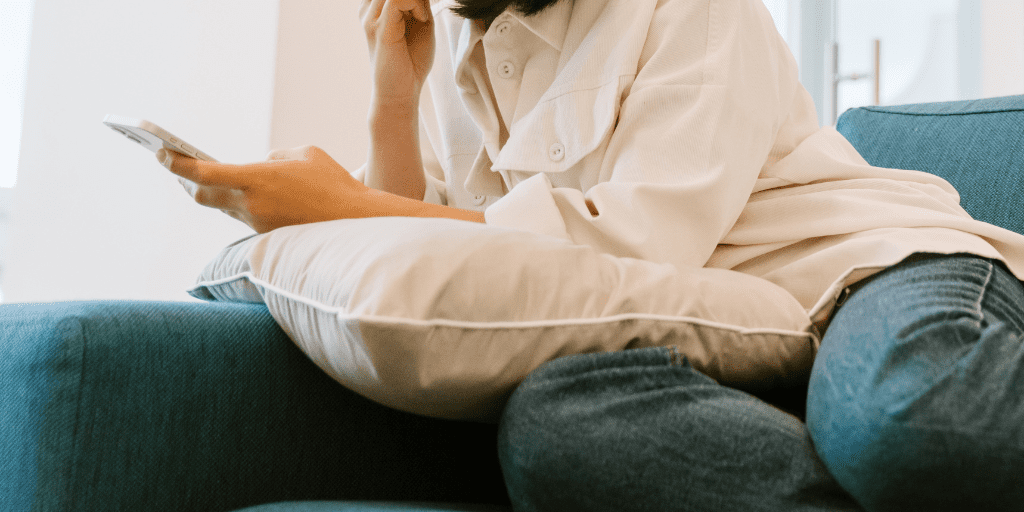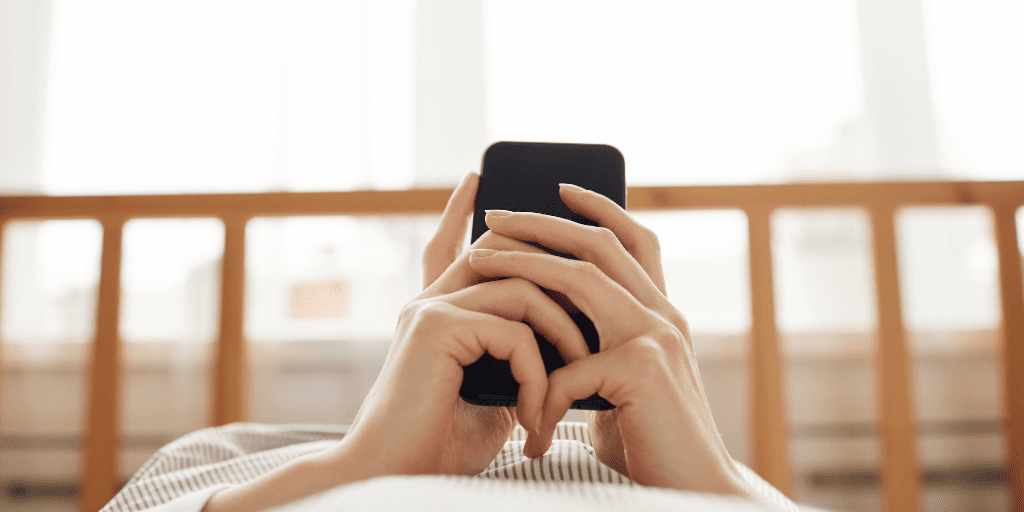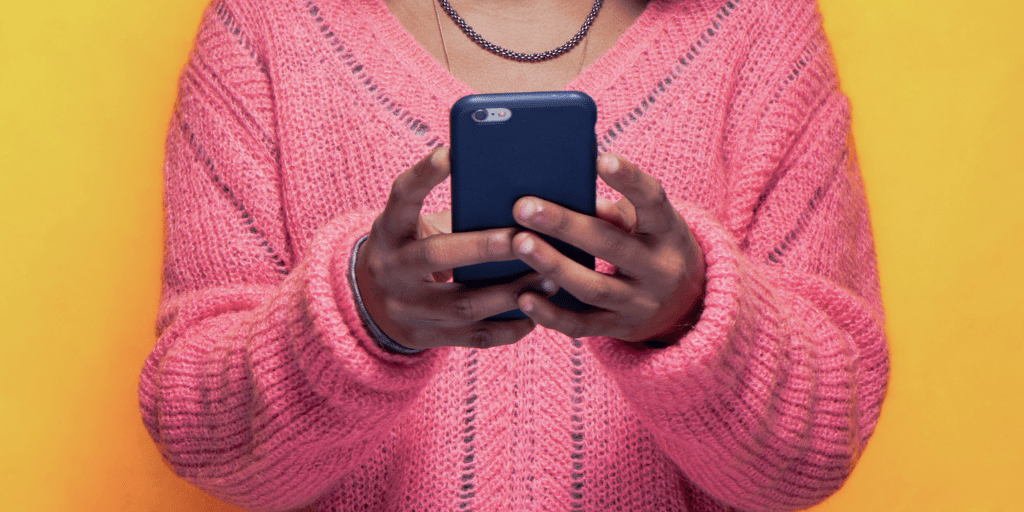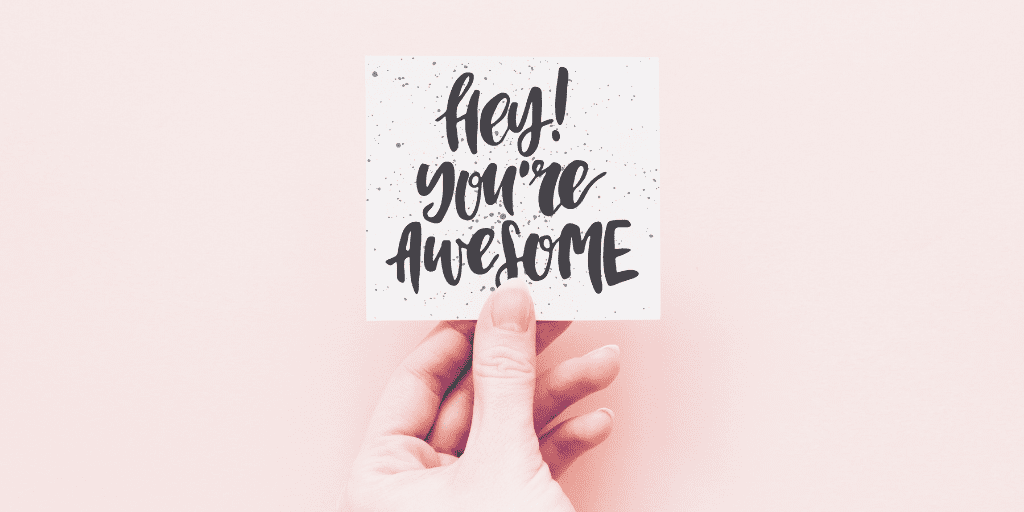We’ve all fallen into the mindless scrolling trap where we open social media “for just a second,” and the next thing you know, an hour has passed. But have you ever found that scrolling social media leaves you feeling kinda blah? Or maybe even sad? Could social media be bad for our mental health?
Research has shown[1] that most of us compare our bodies to those we see when scrolling, and for most of us, that’s not likely to lead to happy feelings. We may logically know that we shouldn’t compare our reality to the “highlight reels” we see others posting, but that can be easier said than done. So, we’ve got some tips for helping you use social media for good (or even limiting it), which will hopefully help prevent the dreaded doomscrolling.
Limit your time on social media to 30 minutes or less per day.
What?! We know – that’s crazy talk! But hear us out: a study from Iowa State University[2] showed that students who limited their social media time to 30 minutes or less per day “scored significantly lower for anxiety, depression, loneliness, and fear of missing out.” For a lot of us, 30 minutes is a drastic cut; but we’d encourage you to at least take some baby steps toward reducing that exposure to see how it improves your mood and overall outlook. (Added bonus: better sleep! Checking socials while laying in bed may lead to poor sleep habits[3]!)

Filter your feed.
Most of us are aware of some of the people or types of content that tend to make us feel less-than-amazing, so take steps to unfollow or hide things from your feed that don’t contribute positively to your well-being. (And if you’re not sure what that might be, try to be mindful of how you feel next time you catch yourself scrolling for awhile.)
Try to keep perspective while scrolling.
It might sound silly, but simply reminding yourself that you’re only seeing pieces of someone’s life and not all of it can help prevent some of those comparison blues. Many people only post “the good stuff,” so it’s easy to think their lives are awesome and then feel bad about your situation.

Be more mindful about when you scroll.
Again, this may sound overly simple, but think about when you scroll. Do you reach for your phone when you’re anxious? tired? bored? How might this affect your mood? Try tracking your mood in a mood tracker app, a journal, or even a note in your phone to see if there’s any correlation between how you’re feeling and when you’re scrolling.
Turn off notifications.
Seriously – this is a game changer, and if you’re aiming to reduce your time on socials, this tip is extra important! It can also reduce the temptation to scroll when you’re already feeling anxious.
Reminder
At the risk of sounding super cheesy: in case nobody else has told you today, we want to remind you that you’re awesome! You’ve got friends here at PLL cheering you on.
Disclaimer: This website and blog do not provide medical advice, diagnosis, or treatment. The information provided here is only for general understanding. This information is not a substitute for professional medical advice.
Want to Learn More?
Disclaimer: This website and blog do not provide medical advice, diagnosis, or treatment. The information provided here is only for general understanding. This information is not a substitute for professional medical advice.
Sources:
- How Social Media Can Harm Your Body Image. Cleveland Clinic. (2023, July 21). https://health.clevelandclinic.org/social-media-and-body-image
- Cutting Back on Social Media Reduces Anxiety, Depression, Loneliness. Iowa State University. (2023, June 14). https://www.news.iastate.edu/news/2023/06/14/limiting-social-media#:~:text=Researchers%20at%20Iowa,outlook%20on%20life.
- How to Finally Stop Doomscrolling. Cleveland Clinic. (2024, May 6). https://health.clevelandclinic.org/everything-you-need-to-know-about-doomscrolling-and-how-to-avoid-it


